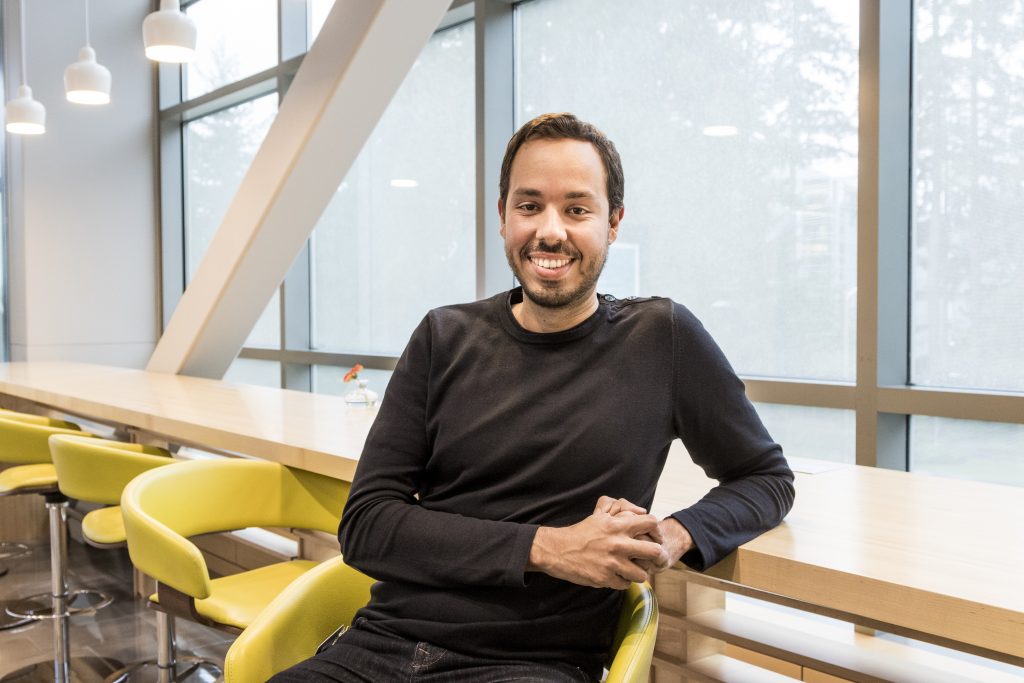Now more than a startup, Brazil’s Samba Tech lands in America with a new office and app
The fifth-largest country in the world, Brazil is home to more than 200 million people, and approximately one quarter of them play games on their mobile phones. But out of those 50 million avid gamers, only one transformed his passion into first a mobile gaming distribution company and then the largest online video streaming platform in Latin America, now with a newly minted office in the United States.
Gustavo Caetano is the founder and CEO of Samba Tech, a Brazilian video streaming company that grew out of Samba Mobile, the endeavor Caetano founded when he was a 19-year-old undergrad with a new smartphone but not enough games to play on it. A decade later, Samba Tech has surpassed its startup label and outgrown its Latin American boundaries. On Wednesday the company announced the beta release of a new mobile app, Kast, and Samba Tech’s expansion to the United States, a move driven in large part by the company’s partnership with Microsoft.
“I was once told that Samba Tech is a shark swimming with little fishes, and we need to swim with the sharks,” Caetano says. “Our desire to swim in deeper waters, where we can make a true impact on the way that people work, is why we are launching Kast in the United States. Our close relationship with Microsoft has been a driving force behind our decision to open our first U.S. sales office in Seattle, just miles from Microsoft’s headquarters.”
Caetano’s story started back in 2005. Frustrated that he couldn’t find any cool games to play on his new mobile phone, he signed an agreement with a British game developer to resell its games in Latin America, and then struck deals with the leading mobile operators in Brazil to distribute them. Within two years, he expanded his business to include the largest mobile operators in Latin America.
Caetano’s success didn’t go unnoticed, though, and competitors quickly came out of the woodwork to copy his model, undercutting his bids and business. So the young entrepreneur sought a new niche – and found one in video streaming, a medium he admits he initially knew nothing about. But that was OK, he says, because no one else in Brazil really did either. “Broadband wasn’t very good here back then so no one was watching it,” he says. “I thought if we could create a platform to stream videos, people would watch.”
Pitching his company as a “white label YouTube for broadcasters,” Caetano quickly signed deals with eight of Brazil’s 10 major TV stations, followed by stations in Peru, Colombia, Costa Rica and Uruguay. His company now streams some of the biggest on-demand and live content, such as the World Cup and UEFA EURO, to millions of people in Latin America.
As big as those events are, however, they pale in comparison to his largest and most consistent market: e-learning. “We noticed early on that the big universities here were becoming media companies just like the networks,” Caetano says. “We thought they’d find a lot of value using the same infrastructure as the TV stations to scale.” That theory proved true. Today many of the universities upload more content from students, faculty and administrators than the networks create.
High-quality video streaming on such a massive scale requires a lot of bandwidth, power and storage, so Caetano needed a cloud platform that could grow with his business. Though he started out in 2012 with Amazon Web Services (AWS), in 2015 he met with the Microsoft Azure Media Services team to learn about their platform, and soon made the switch. “The video technology we saw was years ahead of what we were using,” he says.
Microsoft also offered a one-stop shop for media services that was more comprehensive than Samba Tech’s piecemeal solution that used AWS and third-party vendors. “Suddenly we could do everything in one place: encoding, transcoding, streaming,” Caetano says. “That’s amazing.”
With an influential partner in the United States and a now-seasoned leader at the helm, Samba Tech has continued to broaden its base while still retaining its cred as a savvy startup. Along with the opening of its Seattle office, the company is launching a U.S. mobile video app called Kast, which goes beyond traditional corporate communications tools such as email, text and chat by adding audio and mobile video posts. “We see a huge opportunity to enable productivity in the corporate space, helping companies communicate in a more reliable, easy and natural way than traditional choices,” Caetano says.
“Video is an extremely demanding medium for content delivery and we’re proud to be working with Samba Tech to help ensure customers have a powerful and reliable experience,” says Vahé Torossian, Microsoft’s corporate vice president of Small, Midmarket Solutions & Partners (SMS&P). “Helping companies like Samba Tech evolve, scale and grow in the Microsoft Cloud is important to fostering a rich partner ecosystem.”
Kast enables teams and channels to share the posts from almost any location, anytime, and on any device. Caetano considers it the first enterprise collaboration tool designed for the mobile video and messaging age. “We think of it as a corporate version of popular apps such as Instagram and SnapChat,” he says. “We help companies communicate in a way that audiences are used to and prefer to do.”








